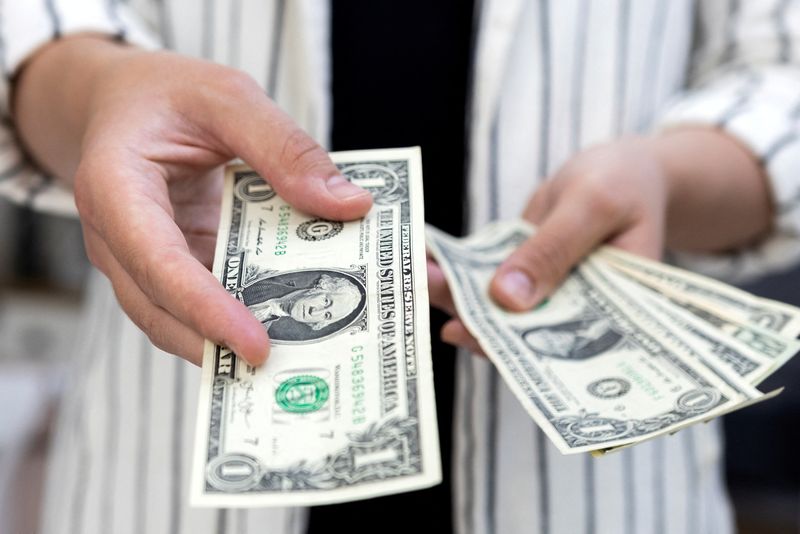By Alun John and Joice Alves
LONDON (Reuters) - The dollar edged up on Thursday after sinking to an eight-month low against peers ahead of U.S. economic data, with investors expecting a recession to encourage the Federal Reserve to slow down its monetary tightening push.
A gloomy U.S. corporate earnings season stoked recession fears in the world's largest economy, sending the dollar index to its lowest level since the end of May. The greenback recovered some ground to trade up 0.2% at 101.76.
Downbeat earnings and guidance from U.S. companies and a string of tech sector layoffs have deepened fears of an economic downturn in the United States, leading investors to pare back expectations for how much longer the Federal Reserve will need to aggressively raise interest rates.
The Commerce Department is due to release advance estimates of U.S. fourth-quarter gross domestic product later on Thursday.
Growth is expected to have slowed, with core personal spending expected to slow too, said Shaun Osborne, Chief FX Strategist at Scotiabank (TSX:BNS). This "should support expectations for the Fed to slow the pace of tightening and weigh on the dollar," he said.
The Fed's policy-setting committee will begin a two-day meeting next week, and markets have priced in a 25-basis-point (bps) interest rate hike, a step down from the central bank's 50 bps and 75 bps increases seen last year.
ECB, BOE MEETINGS
The euro squeezed its way to a new nine-month high of $1.09295 and was last just below that level, down 0.2% on the day at $1.0896. Sterling was flat at $1.2394, not far from a seven-month high touched on Monday against the greenback.
Markets expect policymakers at the Bank of England and European Central Bank (ECB), which meet next week, to deliver 50 bps rate hikes.
The Aussie touched a new five-month high of $0.7129 on greater expectations that more Reserve Bank of Australia interest rate hikes are due after data showing Australian inflation surged to a 33-year high last quarter.
Trading was a little thin with Australia closed for a holiday.
The dollar rose 0.1% against the Japanese yen to 129.69.

Bank of Japan (BOJ) policymakers debated the inflation outlook at their January meeting, with some warning that it could take time for wages to rise sustainably, a summary of opinions at their meeting showed on Thursday.
At that meeting, the BOJ kept ultra-low interest rates unchanged but beefed up a monetary policy tool to prevent the 10-year bond yield from breaching its new 0.5% cap. Its decision defied market expectations of further tweaks to monetary policy.